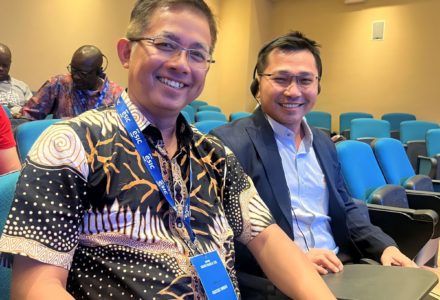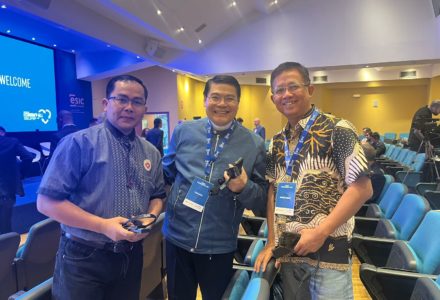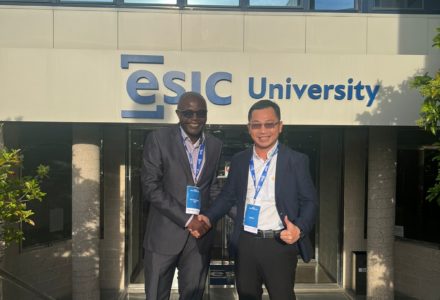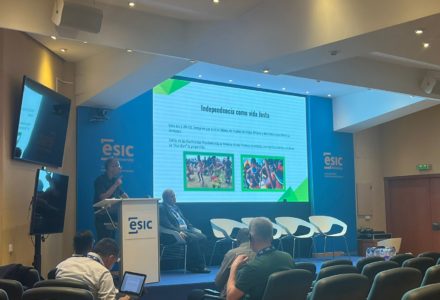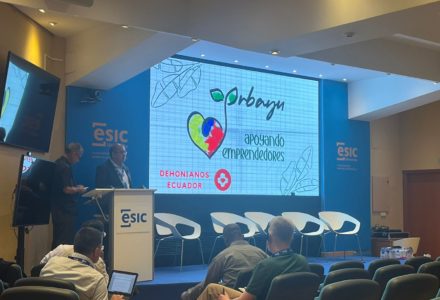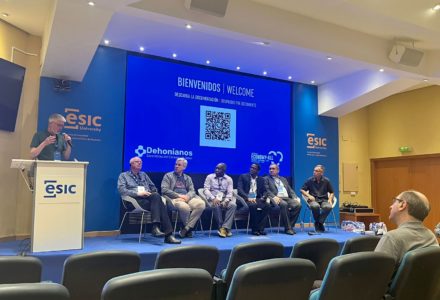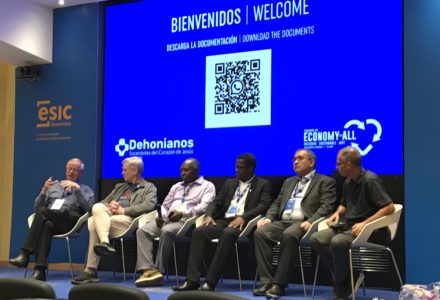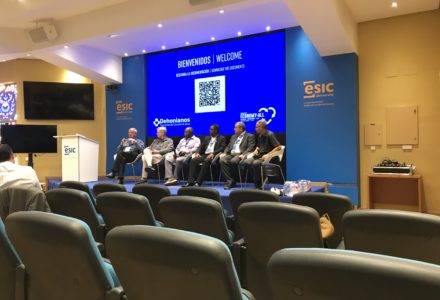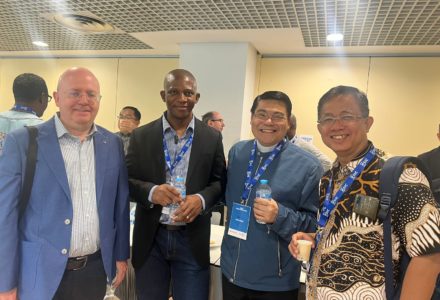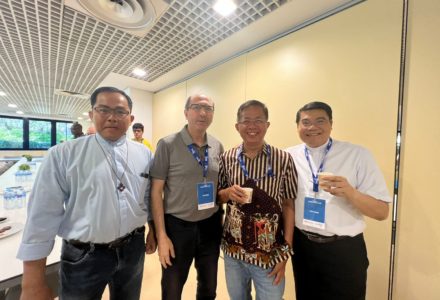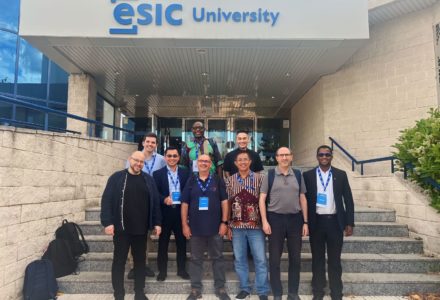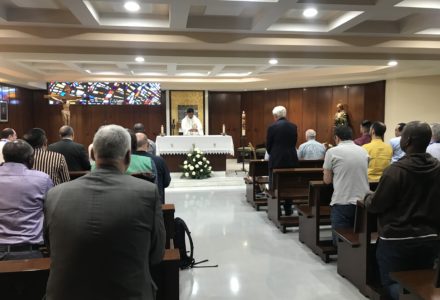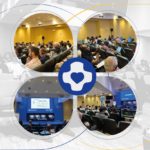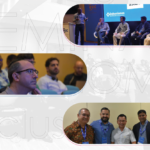Theological Seminar.
Madrid, Tuesday, May 9
KEY MOMENTS:
- 0:42 Introduction (fr. Charles Koudjou)
- 4:24 Gaël Giraud, Theological and spiritual fundaments of an economy for all.
- 52:10 discussion
- 2:22:16 Fr. Joseph Razanatsoa, Presentation of African Dehonian Theological Commission.
- 5:36:04 Manuel Antonio Texeira and Delio Ruiz, Presentation of Latin America Dehonian Theological Commission.
- 6:28:39 Fr. John van den Hengel, Presentation of North America Dehonian Theological Commission.
- 7:52:17 Discussion with John van den Hengel, Zbigniew Morawiec, Joseph Kuate, Joseph Razanatsoa, Delio Ruiz, António Manuel Teixeira.
The second day of the Madrid Theological Seminar opened with the welcome presence of Jesuit Gaël Giraud. This second day he started with his doctoral research in theology (Composer un monde en commun) giving his presentation on the economy an unexpected biblical and theological direction.
He began by proposing a kenotic interpretation of the Ascension and Pentecost narratives (leaving the reader with the “empty throne” of Christ),and he shifted the meaning of the biblical command of “dominion” over creation (Gen 1.28) so that it would no longer represent an idolatrous economy, which has become unjust and inhumane. Taking up his popular theme of resources defined as “commons,” Giraud approached the Church as an institution in which discernment and deliberation in common are fundamental. Here he picked up on the notions of synodal conversion and attention to integral ecology, popularized by Francis’ magisterium which allowed him to begin to think economy and politics (democracy) together, taking us beyond the current crisis.
These themes as well as other themes from the first day then returned in the reports of the three continental theological commissions who each from their own contexts presented the work they had prepared in preparation for the Seminar: the African CTD, by exploring the idea of an inclusive economy based on the relational philosophies “Ubuntu” and “Ujamaa”; the CTD of Latin America, devoting itself to the reality of the Popular and Social Movements that Pope Francis himself has indicated as decisive and indispensable subjects for change in the world economic system; the CTD of North America, recounting the difficult process of reconciliation between the visions of land (and economic relations) cultivated and cherished by Aboriginal cultures and those imposed by the colonizers (with the support of the churches).
The third day will provide time for us to hear from the other Theological Commissions and for a break in the work, before the final synthesis to be presented on the final day.



